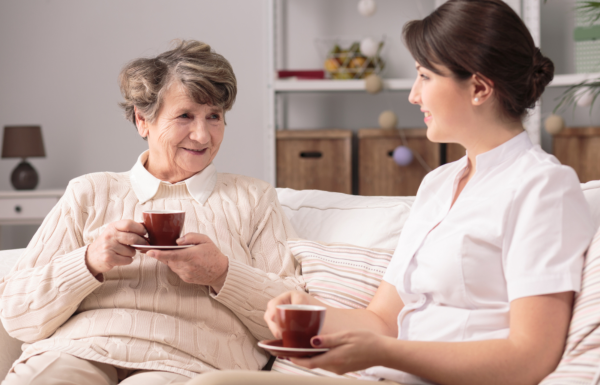Emotional health is a vital part of quality of life, especially for aging adults and those with limited mobility. Feeling connected and supported can make a profound difference in daily comfort and overall well-being. Home companionship provides more than help with routine tasks — it delivers emotional connections that help people stay engaged and hopeful. Maintaining a strong emotional balance allows people to live more fully, making every day feel brighter and more secure.
- Why Emotional Wellness Matters
Emotions have a direct effect on physical health. Individuals who feel isolated or disconnected often experience higher levels of anxiety and depression. This can lead to changes in appetite, disrupted sleep patterns, and a weakened immune system. Regular interaction and meaningful connections reduce feelings of loneliness and create a sense of belonging. Maintaining emotional balance can help reduce discomfort associated with chronic illnesses and can foster a better overall quality of life.
- The Role of Companionship at Home
. The right caregiver offers friendship and understanding. These moments of conversation create an environment where a person feels valued and respected. Sharing a cup of tea, recalling a favorite story, or looking through old photographs together can have a profound effect on emotional well-being. Maintaining a trusted relationship allows for deeper connections and moments that make every day worthwhile.
- Personalized Care Through Understanding
Each person has unique emotional and social needs shaped by their life experience, interests, and preferences. A trained companion takes time to understand habits, listen to stories, and learn about interests. This approach allows for moments of connection — talking about a favorite book, sharing a hobby, or enjoying a favorite piece of music. By focusing on comfort and independence, a companion can help foster a sense of belonging and purpose, making every interaction more rewarding.
- Consistent Companionship Reducing Isolation
Regular visits from a trusted caregiver break long stretches of isolation that many aging adults experience. Social interaction improves emotional resilience and can motivate people to stay active and engaged. Feeling connected encourages participation in daily activities, such as a short walk, a conversation about the news, or working on a favorite hobby. This consistency can be especially valuable for those dealing with illness, recovery, or long-term mobility restrictions.
Emotional needs matter as much as physical needs. Caregivers are selected for their ability to build trust and provide respectful, individualized support. They spend time getting to know each person, focusing on meaningful connections that reduce feelings of isolation and foster belonging. Care services are tailored to fit the habits and interests of each person, making sure every visit feels comfortable and reassuring.
Through daily conversations and routine visits, One By One Home Care provides more than help with activities of daily living. The focus is always on nurturing emotional health. Caregivers listen, learn, and create a supportive environment that promotes emotional resilience, making every interaction an opportunity for connection and comfort.
- A Commitment to Respect and Dignity
Personal space and individual identity matter deeply when it comes to emotional well-being. Maintaining a person’s routine, interests, and connections allows for a strong sense of independence and respect. Helping people maintain connections with friends, family, and cherished habits promotes emotional stability and a better quality of life. This approach allows those receiving care to remain in a space where they feel safe, valued, and in control.
Selecting a caregiver is an important decision. It is about finding someone who understands both emotional and physical needs, provides regular interaction, and a listening ear. A trusted caregiver delivers more than physical support — they also create moments of warmth, conversation, and understanding that can make every day more fulfilling. This approach reduces feelings of vulnerability and strengthens emotional well-being over time.
- How Emotional Wellness Supports Recovery and Longevity
Studies have shown that emotional connections and consistent human interaction can aid in recovery from illness or injury. Engaging conversations, shared moments of remembrance, and patient listening can reduce stress, lower blood pressure, and support better overall health. These moments of human connection can also motivate people to maintain therapy exercises or adhere to medical recommendations. By focusing on emotional wellness, a person can experience a more balanced recovery and a higher quality of life.
- A Path Toward Greater Peace of Mind
A focus on emotional wellness allows aging adults to maintain connections with friends, family, and interests. Feeling understood and valued improves their daily routine and encourages emotional resilience. When a person feels genuinely supported, feelings of isolation give way to a sense of belonging. This leads to a more hopeful and enriching daily life, regardless of medical or physical limitations.
If you have a loved one who could benefit from compassionate and dependable home companionship, now is the right time to learn more. Contact One By One Home Care to answer questions, assess individual needs, and create a personalized care plan that prioritizes emotional health. Reach out to find out how a dedicated caregiver can make a meaningful difference in the life of someone you care about.







Leave a Reply